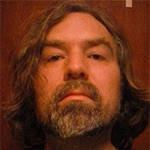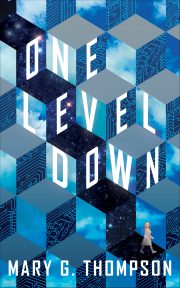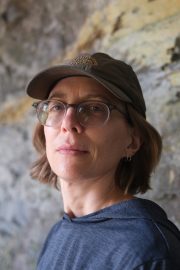Writing to the Shadows
by Paul Jessup
 Let’s talk about that early stage of the story, when you have that bright gleaming idea in your head, burning brightly. It wants to be born, it wants to come to life. You spend days, weeks, months doing research, laying down pages and pages and pages of notes. Enough to be a small novel in itself. And then you start writing.
Let’s talk about that early stage of the story, when you have that bright gleaming idea in your head, burning brightly. It wants to be born, it wants to come to life. You spend days, weeks, months doing research, laying down pages and pages and pages of notes. Enough to be a small novel in itself. And then you start writing.
And the project changes. Just a little bit at first, and you try to keep it within your original parameters, but the more you write, the more it changes. It mutates, it becomes different, strange. It grows out of bounds, pushing you past all your original thoughts and ideas. All those notes? Well, practically worthless now.
And in the end, be it a short story or a novel or a video game, you have some strange new beast that’s unlike anything you had planned at the outset. Is this a good thing? Is this a bad thing? What is this? It happens to me with everything I write, even tiny short stories. And I find, that in my own personal writing style, the more I drift away from the original idea, the better the end product is, by a large magnitude.
For example, when I started writing the short story A Word Without Ghosts (published 2008, Fantasy Magazine), it was going to be a modern take on the Beauty and the Beast folklore archetype. That changed quickly, when the beast turned out to be her brother, the world filled with ghosts, and a demonic witch mother who kidnaps her. What went from a straight-up retelling turned into something completely new, different, and better. All because I let the story evolve as I was writing.
The same could be said for my novella duology Close Your Eyes. When I first started working on it, I was picturing Star Wars on acid. The end product ended up being so much stranger, weirder, and harder to nail down than all of my original ideas and notes. The first short story I wrote that I let evolve in this way was Ghost Technology from the Sun (published 2006, PS Publishing). The original first draft I tried to keep to a specific structure and idea, two alternating viewpoints of past and present.
When I got a note back from the editor requesting a rewrite (but no sale yet), I read over what I’d written before, and I saw that the second viewpoint in the present day was jarring and disruptive, and really just plain boring. I ripped it out, ripped out the rest of the story, and kept the opening scene, because I really thought it was amazing, and took it from there. And on the whole it became a far better story because I let it evolve, I wasn’t afraid to just chuck those notes out the window and roll with it.
I’ve heard other writers pooh-pooh this as undisciplined, but I don’t think that’s the case at all. I think it’s much harder to work this way, to just go with the flow of the story and let it be it’s own thing, rather than try and confine it to the original concept and staple it down. It requires far more rewriting, editing, going back and changing things and then changing things again. It requires the fearlessness to not know what will happen next and be 100% okay with that.
It is a terrifying thing, to be certain. T.S. Eliot once lamented this in his poem The Hollow Men, by saying:
Between the idea
And the reality
Between the motion
And the act
Falls the Shadow
Of course, this is a very Neoplatonic frame of mind. It’s the idea that once something moves from the aether of abstraction and into actual physical form, it becomes corrupted. But I don’t think this is true. I think the end result is far more beautiful than the abstract idea, it’s far more daring and interesting. I want more shadows, damnit, I want writing that takes risks, that’s fearless and bold.
And I think the best way to get that kind of writing is to take all those notes, gather all those thoughts and let them fester. And then, when you start writing? Throw them out all-together. Just go where the writing goes, see what happens and just keep going. Don’t be sad that the pristine perfect idea got away from you, instead be joyous and ecstatic from the evolution of your work and the messy results. It will be far from perfect, and it will be all the better for it. Why chase after perfection when you can follow the shadows?
And evolution is exactly what this is, it’s letting the best ideas evolve out of your original ones, allowing them to change and grow and mutate. It’s messy and strange and takes forever, and sure you might wind up with a giraffe or a duck-billed platypus, but those things are great anyway. We need more shadows, we need to pursue them and run after them.
It’s terrifying, certainly. But it’s also thrilling, isn’t it?
•••
Paul Jessup is a critically acclaimed/award-winning author of strange and slippery fiction. His novel Close Your Eyes is currently out from the Apex Book Company. You can visit him at pauljessup.com or on Twitter at @pauljessup.


